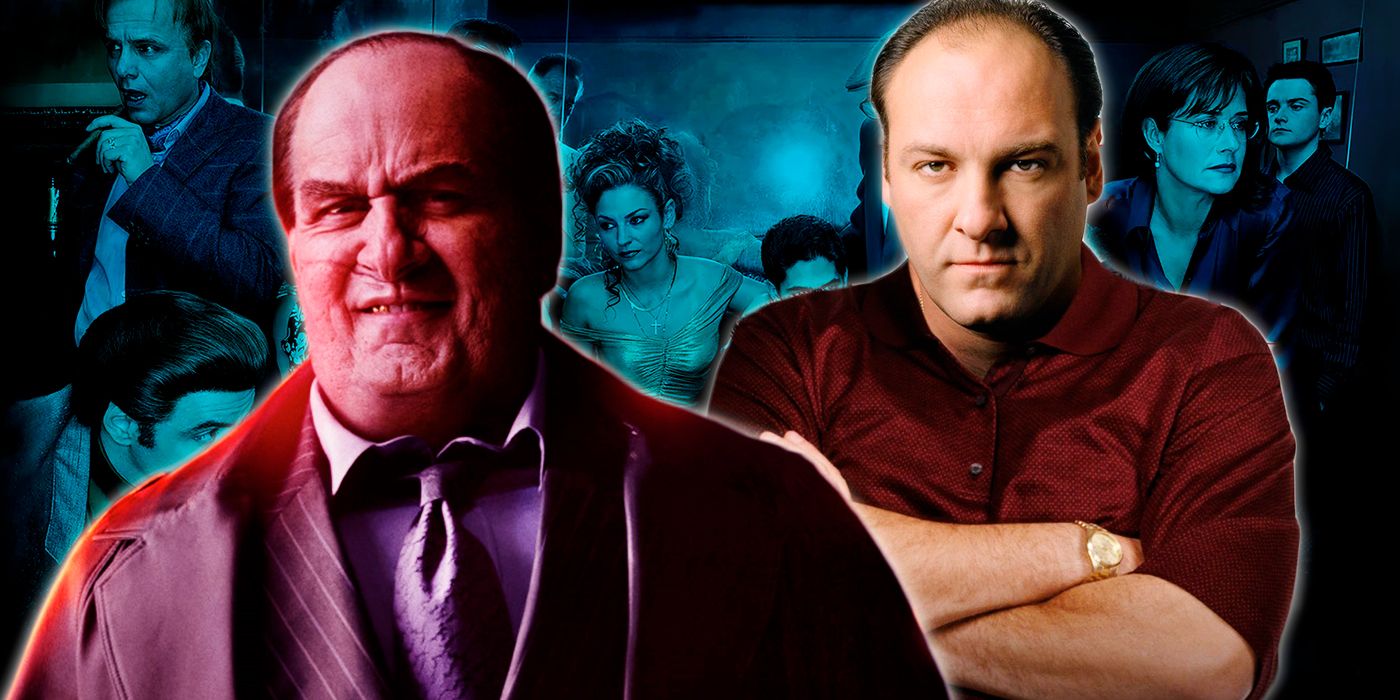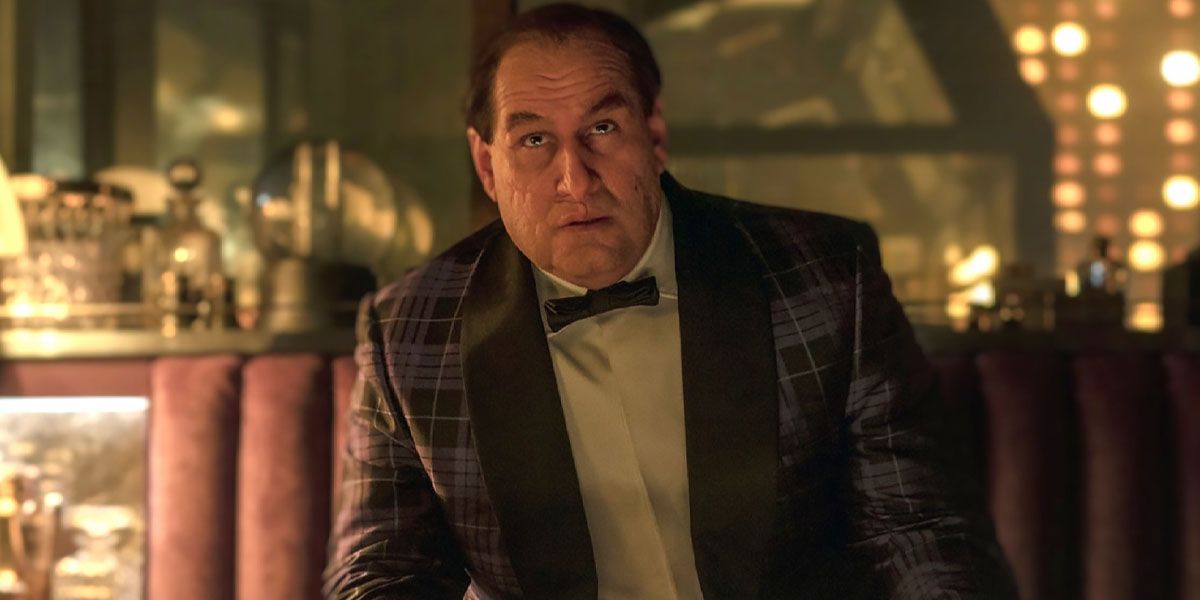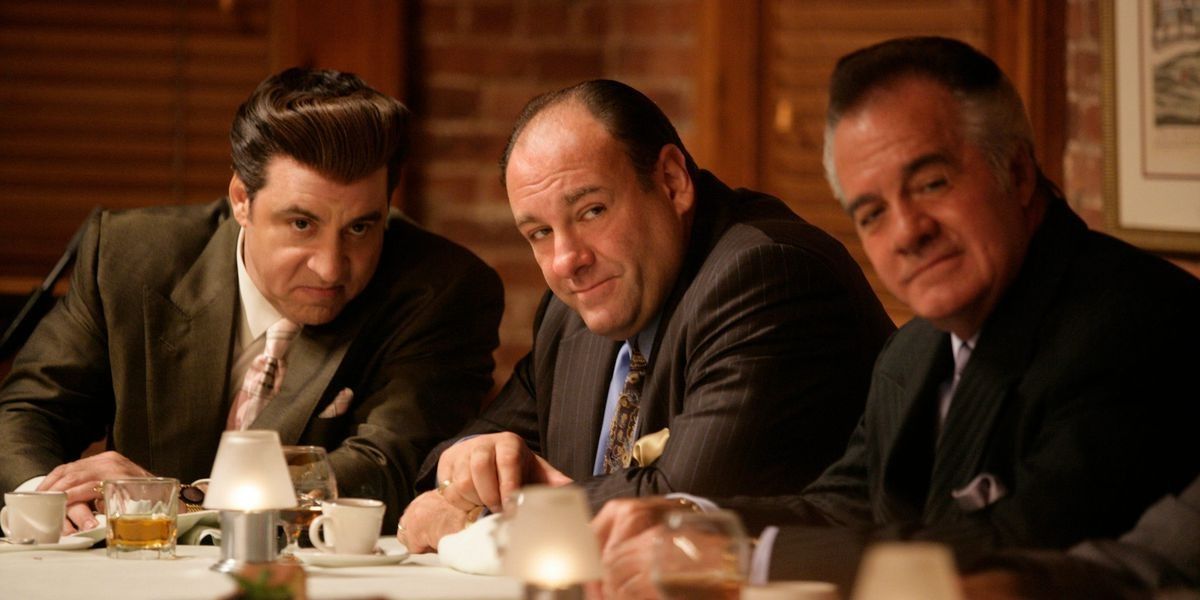As fans anxiously await the coming sequel to Matt Reeves' 2022 hit The Batman, they can rest easy that a return to the universe is on the horizon. While a sequel is likely years away, Warner Bros. has announced that a spin-off series titled The Penguin will be coming to HBO Max, possibly as early as 2023. The series is set to star Collin Farrell as the titular DC Comics villain and is speculated to pick up with the character where the film last saw him. Already, predictable comparisons have been drawn between Farrell's Oswald Cobblepot and the cast of another HBO series: The Sopranos. While the similarities may seem surface level, drawing inspiration from the HBO classic could make The Penguin surprisingly impactful.
When The Batman begins, Cobblepot is merely a cog in Carmine Falcone's vast, well-oiled organized crime machine. Throughout the film, he serves as less of an antagonist to Batman's quest for justice, instead being a selfish, violent, yet ultimately helpful supporting character. Much of the film concerns Batman trying to uncover the identity of "the rat with wings," a police informant that sold out former crime boss Salvatore Maroni. Cobblepot ultimately learns that this rat was actually Carmine Falcone himself, who used Maroni's ousting to gain and consolidate his rule of Gotham's crime world.
The end of the film finds The Penguin at a vulnerable, liminal point in his career. As he stares broodingly into the Gotham skyline through the windows of the Iceberg Lounge, it's clear his faith has been shaken by Falcone's betrayal; it's a point emotionally similar to where Tony Soprano finds himself at the beginning of The Sopranos. The great anxiety of The Sopranos is change; changing cultural make-ups and attitudes in America, changing family dynamics, growing up, the decline of organized crime, etc. Through each season of the show, Tony is confronted with the dangers of staying on his current path, and the seeming impossibility of diverging from it.
While The Sopranos' tri-state crime scene slowly loses power and relevancy, The Batman's criminals -- Cobblepot especially -- are faced with their own impotence. The Riddler revealed Gotham's true nature; in a city where organized crime, the government and the police are reliant on each other, the only way to have power -- to control change -- is to act outside those systems. Though Bruce Wayne learns a radically different lesson from this truth, Cobblepot will need to evolve or die to maintain his newfound power.
Collin Farrell's Oswald Cobblepot is immensely entertaining, but he's far from the criminal mastermind fans recognize from previous iterations. Just as the characters of The Sopranos were forced to change by their evolving society, a rise of chaotic, anarchic criminals could force Cobblepot to rise to their level in order to compete. With The Riddler meeting The Joker in the film's final moments, it's clear that Gotham will become ruled evermore by fear than by greed. By the time The Batman's sequel comes about, The Penguin may have brought about a complete shift in Gotham society, and its title character as well. And on the journey to this new, fearsome Penguin and his equally terrifying city, the show could find a surprisingly emotional story.
On The Sopranos, this emotional struggle against change is what gave the series such vibrant heart, even among the increasingly bloody story. Though the crime bosses of the show act like all-powerful gods, the reality at the center is a group of very lost, soon-to-be irrelevant men fighting for any kind of dignity and identity. By tapping into this human fear, HBO was able to ground this larger-than-life concept in relatable themes. If they could do the same with The Penguin, it could prove to be a genuinely moving modern classic of television and a beacon of what superhero shows could achieve.



